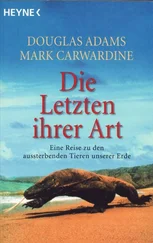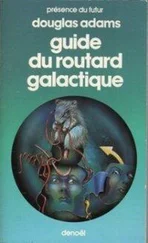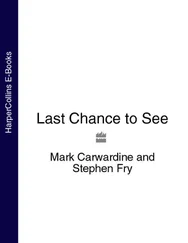Douglas Adams - Last chance to see
Здесь есть возможность читать онлайн «Douglas Adams - Last chance to see» весь текст электронной книги совершенно бесплатно (целиком полную версию без сокращений). В некоторых случаях можно слушать аудио, скачать через торрент в формате fb2 и присутствует краткое содержание. Жанр: Фантастика и фэнтези, на английском языке. Описание произведения, (предисловие) а так же отзывы посетителей доступны на портале библиотеки ЛибКат.
- Название:Last chance to see
- Автор:
- Жанр:
- Год:неизвестен
- ISBN:нет данных
- Рейтинг книги:5 / 5. Голосов: 1
-
Избранное:Добавить в избранное
- Отзывы:
-
Ваша оценка:
- 100
- 1
- 2
- 3
- 4
- 5
Last chance to see: краткое содержание, описание и аннотация
Предлагаем к чтению аннотацию, описание, краткое содержание или предисловие (зависит от того, что написал сам автор книги «Last chance to see»). Если вы не нашли необходимую информацию о книге — напишите в комментариях, мы постараемся отыскать её.
Last chance to see — читать онлайн бесплатно полную книгу (весь текст) целиком
Ниже представлен текст книги, разбитый по страницам. Система сохранения места последней прочитанной страницы, позволяет с удобством читать онлайн бесплатно книгу «Last chance to see», без необходимости каждый раз заново искать на чём Вы остановились. Поставьте закладку, и сможете в любой момент перейти на страницу, на которой закончили чтение.
Интервал:
Закладка:
Winter came and went, a hard winter, but the city just about managed to flourish through it and then, the following summer the old woman was back.
'Oh, you again,' said the people of the city. 'How's the knowledge and wisdom going??
'Six books,' she said, `just six left. Half of all the knowledge and wisdom in the world. Once again I am offering to sell them to you.'
'Oh yes?' sniggered the people of the city.
`Only the price has changed.'
`Not surprised.'
`Two sacks of gold.'
'What?
'Two sacks of gold for the six remaining books of knowledge and wisdom. Take it or leave it.'
'It seems to us,' said the people of the city, `that you can't be very wise or knowledgeable yourself or you would realise that you can't just go around quadrupling an already outrageous price in a buyer's market. If that's the sort of knowledge and wisdom you're peddling then, frankly, you can keep it at any price.'
'Do you want them or not?'
No.
`very well. I will trouble you for a little firewood.'
She built another bonfire, and burnt three of the remaining books in front of them and then set off back across the plain.
That night one or two curious people from the city sneaked out and sifted through the embers to see if they could salvage the odd page or two, but the fire had burnt very thoroughly and the old woman had raked the ashes. There was nothing.
Another hard winter took its toll on the city and they had a little trouble with famine and disease, but trade was good and they were in reasonably good shape again by the following summer when, once again, the old woman appeared.
`You're early this year,' they said to her.
`Less to carry,' she explained, showing them the three books she was still carrying. `A quarter of all the knowledge and wisdom in the world. Do you want it?'
`What's the price?'
`Four sacks of gold.'
'You're completely mad, old woman. Apart from anything else our economy's going through a bit of a sticky patch at the moment. Sacks of gold are completely out of the question.'
`Firewood, please.'
`Now wait a minute,' said the people of the city, `this isn't doing anybody any good. We've been thinking about all this and we've put together a small committee to have a look at these books of yours. Let us evaluate them for a few months, see if they're worth anything to us, and when you come back next year perhaps we can put in some kind of a reasonable offer. We are not talking sacks of gold here, though.'
The old woman shook her head. 'No,' she said. `Bring me the firewood.'
'It'll cost you.'
`No matter,' said the woman, with a shrug. `The books will burn quite well by themselves.'
So saying, she set about shredding two of the books into pieces which then burnt easily. She set off swiftly across the plain and left the people of the city to face another year.
She was back in the late spring.
`Just the one left,' she said, putting it down on the ground in front of her. `So I was able to bring my own firewood.'
`How much?' said the people of the city.
`Sixteen sacks of gold.'
'We'd only budgeted for eight.'
`Take it or leave it.'
'Wait here.'
The people of the city went off into a huddle and returned half an hour later.
`Sixteen sacks is all we've got left,' they pleaded. `Times are hard. You must leave us with something.'
The old woman just hummed to herself as she started to pile the kindling together.
`All right!' they cried at last, opened up the gates of the city and led out two oxcarts, each laden with eight sacks of gold, `but it had better be good.'
`Thank you,' said the old woman, `it is. And you should have seen the rest of it.'
She led the two oxcarts away across the plain with her, and left the people of the city to survive as best they could with the one remaining twelfth of all the knowledge and wisdom that had been in the world.
Mark's Last Word ...
Was this really our last chance to see these animals? Unfortunately, there are too many unknowns for there to be a simple answer. With strenuous efforts in the field, the populations of some have actually begun to rise. But it is clear that if those efforts were suspended for a moment, the kakapos, the Yangtze river dolphins, the northern white rhinos and many others would vanish almost immediately.
Not that a large population necessarily guarantees an animal's future survival, as experience has shown many times in the past. The most famous example is the North American passenger pigeon, which was once the commonest bird that ever lived on earth. Yet it was hunted to extinction in little more than fifty years. We didn't learn any lessons from that experience: ten years ago, there were 1.3 million elephants in Africa , but so many have been killed by poachers that today no more than 600,000 are left.
On the other hand, even the smallest populations can be brought back from the brink. Juan Fernandez fur seal numbers dropped from millions to fewer than one hundred by 1965; today, there are three thousand. And in New Zealand in 1978, the population of Chatham island robins was down to one pregnant female, but the dedication of Don Merton and his team saved the species from extinction and there are now more than fifty.
The kakapo may also be on a slow road to recovery. Soon after we returned to England , we received the following letter from New Zealand :
P.O. Box 3 Stewart Island
Dear Douglas and Mark, I hope this reaches you quickly - I have some good news from kakapo country on southern Stewart Island At 08.45 hrs on 25 August 1989 one of our dog. handlers, Alan Munn, and his English setter `Ari' located a new female kakapo near Lees Knob, at an altitude of 380 metres. `Jane' weighed 1.25 kg and she scrarked a lot when Alan picked her up. She had just finished moulting but looked in good condition, so in a few days she will be flown to her new home - Codfish Island . Once again, thanks very much for your visit. It certainly helped give those Big Green Budgies some of the attention they deserve.
Yours sincerely,
Andy Roberts (kakapo project manager)
for R Tindal, District Conservator,
Department of Conservation, Rakiura.
We later received some further good news about the kakapos. Two more females have been found on Stewart Island and transferred to Codfish, bringing the total kakapo population up to forty-three.
Meanwhile, on little Barrier Island , several of the males there have been booming for the first time including, to everyone's delight, a nine-year-old called `Snark'. Born on Stewart Island in 1981, Snark was the only kakapo chick to have been seen by anyone this century.
But the best news of all was still to come. just before going to press, a very excited Don Merton telephoned to say that a newly made kakapo nest has just been found on Little Barrier island. Inside the nest, which was built by a nine-year-old female called `Heather', was a single kakapo egg.
Transferring kakapos to Little Barrier and Codfish Islands has been a calculated risk - but it is the only hope of saving the kakapo from extinction. Heather's nest is the first encouraging sign that the project is actually working and now everyone is waiting nervously to see if her egg will hatch and if she can raise the chick in her adopted home.
We also received a letter from Kes Hillman-Smith in Zaire to say that three baby northern white rhinos have been born in Garamba since we left, bringing the total population up to twenty-five. The enthusiastic park staff have named them 'Mpiko', meaning courage; `Molende', meaning perseverance; and `Minzoto', meaning a star.
It's important to recognise that not every conservation strategy necessarily works: we are often experimenting in the dark. During the early stages of the Garamba project a lot of pressure was put on the Zairois to have all of their northern white rhinos captured and taken into captivity. The government of Zaire would not agree to this. They said that the rhinos belong to them and they didn't want them to go to zoos in other parts of the world. Fortunately it seems that this was the right decision. Northern white rhinos, it turned out, do not breed well in captivity - the last one was born in -1982 - whereas more than ten have been born in the same period in the wild.
Читать дальшеИнтервал:
Закладка:
Похожие книги на «Last chance to see»
Представляем Вашему вниманию похожие книги на «Last chance to see» списком для выбора. Мы отобрали схожую по названию и смыслу литературу в надежде предоставить читателям больше вариантов отыскать новые, интересные, ещё непрочитанные произведения.
Обсуждение, отзывы о книге «Last chance to see» и просто собственные мнения читателей. Оставьте ваши комментарии, напишите, что Вы думаете о произведении, его смысле или главных героях. Укажите что конкретно понравилось, а что нет, и почему Вы так считаете.







